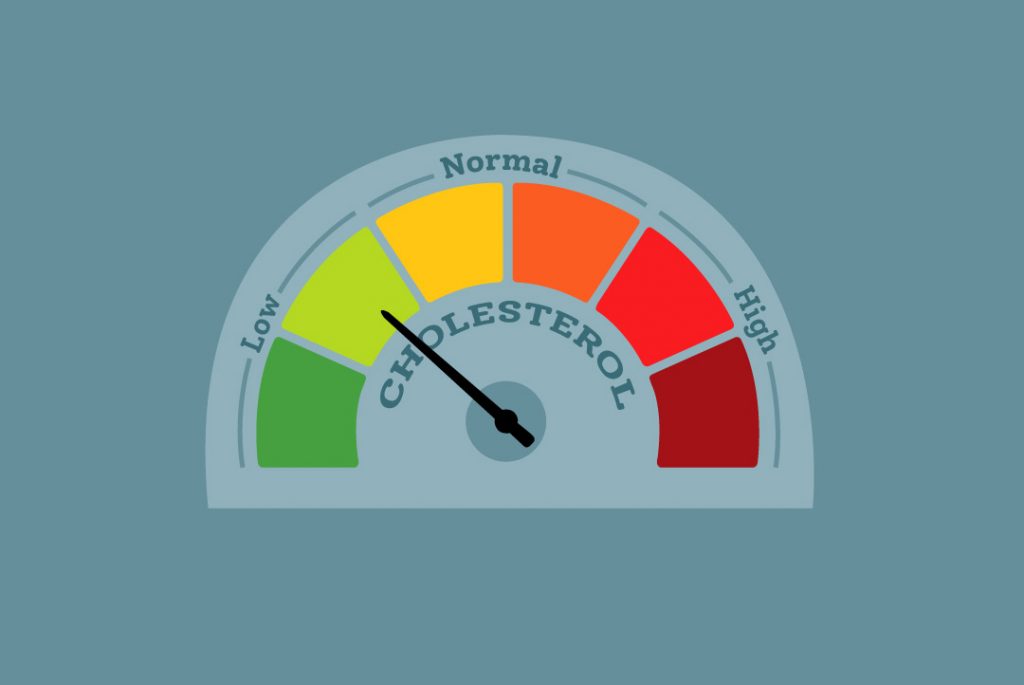LEARN MORE
MARCH 2024
Cholesterol tips and tricks
Your body needs cholesterol to build healthy cells. But too much puts you at risk for heart disease.
High cholesterol is often the result of unhealthy choices — which makes it preventable and treatable. With some simple changes to your diet and lifestyle, you can protect your heart and your health.
Looking for more? Find other articles below

What is high cholesterol?
If you have high cholesterol, it means there are too many lipids (fats) in your blood. These lipids build up in your arteries to form fatty deposits, or plaque. Over time, those deposits grow, making it difficult for enough blood to flow through the arteries. Sometimes, those deposits can break suddenly and form a clot that can cause a heart attack or stroke.
“Good” versus “bad” cholesterol
Good cholesterol (HDL) helps your liver keep cholesterol levels balanced. Bad cholesterol (LDL) is the culprit that makes fatty deposits form in your arteries. Boosting HDL and reducing LDL are healthy goals to have.
Get checked
The only way to tell if you have high cholesterol is with a blood test. The National Heart, Lung, and Blood Institute recommends getting cholesterol screenings every five years, starting between ages 9 and 11. That should be bumped up to every two years at age 45 for men and age 55 for women. All people over age 65 should get their cholesterol tested annually. If you have heart disease, diabetes or a family history of high cholesterol, you may need to get your cholesterol checked more often.
Do you know your numbers?
Your cholesterol numbers show how much cholesterol is circulating in your blood. Your HDL cholesterol is the number you want to be high, ideally above 60. Your LDL should be below 100. Your total cholesterol should be below 200. Talk to your provider about what your results mean for you.
People with diabetes are more prone to having high cholesterol. This is also true of people with high blood pressure. Omada for Hypertension is now available for Costco employees and their household members (age 18+) and joins Omada for Diabetes and Prevention to help you manage these conditions and improve your heart health. Enrollment is easy at OmadaHealth.com/Costco.
Follow these tips to improve your cholesterol

Trim saturated fats.
Rich, animal-based foods contain saturated fat that can raise your “bad” LDL cholesterol. These include butter, heavy cream, cheeses, processed foods, fatty cuts of beef and chicken with the skin on. Try occasionally swapping them for low-fat dairy products, lean poultry or fish. Trim any excess fat from red meat, and remove chicken skin before eating.

Avoid trans fats.
Some packaged foods, such as cookies, crackers and cakes, contain trans fats, or partially hydrogenated vegetable oil. These man-made fats can raise not only your cholesterol, but also your triglycerides — another type of fat that contributes to heart disease. Check the ingredients of packaged foods before you buy them.

Up your fiber.
A diet high in fiber can reduce your cholesterol levels as much as 10%. Think fresh fruits and veggies, oatmeal, beans, lentils, nuts and seeds. Aim to eat your fruits and veggies instead of juicing/drinking them. And don’t skip the edible skin or peel — there’s loads of fiber there, too.

Rethink fried foods.
Foods are often fried in oils that are rich in saturated or trans fats. Look for recipes and restaurant items that bake, broil, roast or stir-fry instead. You can also experiment at home with an air fryer, which fries foods without oil.

Get moving.
Sitting too much can deplete your “good” HDL cholesterol levels. Experts suggest aiming for 150 minutes of moderate exercise — such as brisk walking — each week, but any movement is good movement. Do what you can when you can.

Quit or cut back on nicotine products.
Smoking lowers levels of “good” HDL cholesterol — especially in women. At the same time, it can increase both your triglycerides and “bad” LDL cholesterol.

Go ahead — enjoy that Sunday omelet.
While eggs get a bad rap for being high in cholesterol, you don’t need to give them up. Eggs are high in protein, vitamins, minerals and healthy fat, making them a nutritious choice. Unless your doctor advises otherwise, it should be safe for you to eat up to seven eggs each week.
Sources:
Mayo Clinic. High cholesterol.
Cleveland Clinic. High cholesterol diseases.
Cleveland Clinic. Cholesterol numbers and what they mean.
Resources for you
- Omada for Diabetes, Hypertension & Prevention offers one-on-one coaching, tools and support to help employees living with or at risk for these medical conditions make lifestyle choices that reduce cholesterol and improve heart health. This program is offered to all employees and their family members (age 18+) enrolled in a Costco medical plan. To learn more, visit OmadaHealth.com/Costco or call 888-409-8687.
- Live Healthy Team can connect you with dietitians and other specialists to help you control your cholesterol and get healthier. All Costco employees enrolled in a Costco medical plan are eligible for services. To get started, connect with a Live Healthy Coach at 800-814-3543 (option 2).
- Omada for Diabetes, Hypertension & Prevention offers one-on-one coaching, tools and support to help employees living with or at risk for these medical conditions make lifestyle choices that reduce cholesterol and improve heart health. This program is offered to all employees and their family members (age 18+) enrolled in a Costco medical plan. To learn more, visit OmadaHealth.com/Costco or call 888-409-8687.
- Omada for Diabetes, Hypertension & Prevention offers one-on-one coaching, tools and support to help employees living with or at risk for these medical conditions make lifestyle choices that reduce cholesterol and improve heart health. This program is offered to all employees and their family members (age 18+) enrolled in a Costco medical plan. To learn more, visit OmadaHealth.com/Costco or call 888-409-8687.

